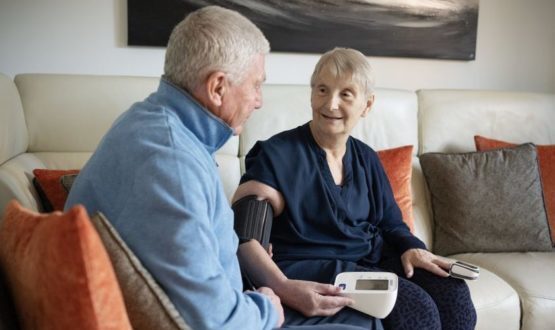Lack of shared understanding slowing progress toward hospital at home
- 2 May 2023

PA Consulting’s global survey of 550 leaders across public and private healthcare has found that nearly two thirds (65%) believed a lack of understanding of healthcare systems and pathways by medtech and pharma could slow the adoption of home-based care in the next five years.
The increasing burden of disease and chronic conditions, compounded by an aging population, have escalated costs and impacted health outcomes.
Despite global respondents to the survey by PA, the company who won the contract to support the NHS Digital, NHSX and HEE merger with NHSE, believing moving care from hospital to home will help curtail rising healthcare costs in the next three years, PA’s research shows a lack of understanding, collaboration, and co-development between stakeholders.
While healthcare leaders see suppliers’ lack of understanding of healthcare systems as the biggest barrier, health and care professionals also are wary of under-developed infrastructure, technological and financial implications, and clinical and reputational impact.
Healthcare leaders see the opportunity and 72% say their organisation is prioritising at-home solutions – including diagnostics, monitoring, and advanced drug delivery systems – to provide patients with quality care while protecting capacity.
Seven in ten global healthcare leaders (71%) say their organisation has a strategy for migration from hospital to home, but believe health and care professionals doubt that treatments delivered at home are as safe as those delivered in traditional settings.
Today, fewer than a third (28%) of healthcare leaders say physicians are motivated to transition from hospital care, despite the positive medical outcomes. Even more worrying is that in five years’ time – when it is expected that hospital at home will be mainstream – this only rises to 40 percent.
Amanda Grantham, healthcare expert at PA Consulting, said: “As hospital to home solutions become more economically viable, match and exceed the efficacy of treatments delivered in hospitals, and improve the experience of patients and professionals, the dynamics of healthcare will change.
“By co-developing solutions, ecosystem stakeholders can open up market opportunities and create a win-win model that delivers value for all.”
The report highlights four key steps that can accelerate the shift from hospital to home care:
Engaging all stakeholders to collaboratively define future care
Co-designing products and services with partners and patients is key. Focusing on outcomes, not equipment, and on people’s needs, not technology will improve patient outcomes.
In one council area, this approach has seen wearable detectors, smart sensors, and personal GPS devices support various health conditions at home and delivered £30 million in net financial benefits.
Differentiate through experience
Create better, safer, easier experiences for patients and professionals. Patients have power – their attitudes dictate treatment effectiveness and drive care pathway changes.
In renal dialysis, for example, patients called for dialysis machines for use at home to reduce time spent in clinics, actively shifting site of care.
Deploy digital with intention
Digital solutions are more likely to see widespread adoption where there is a clear link between solution and value. New Prescription Digital Therapeutics (PDTs), for example, are helping to rethink current mental health care.
PDTs enable lower priority sessions to be completed via an app, reducing long waiting lists while allowing psychologists or psychiatrists to focus on acute patients.
Show the value
Patient quality of life, health equity, and community impact are key facets of the new understanding of value. Better health outcomes as a result of shifting site of care will benefit patients and reduce pressure on healthcare practitioners.
Hilary Thomas, health and life sciences expert at PA Consulting, said: “Market leaders across the worldwide healthcare, medtech, and pharma landscape are pushing the boundaries of possibility, using breakthrough technologies, science, and data to redesign care pathways that unlock new opportunities.
“At the heart of this opportunity is shifting the site of care to the most appropriate, most economic location.”




